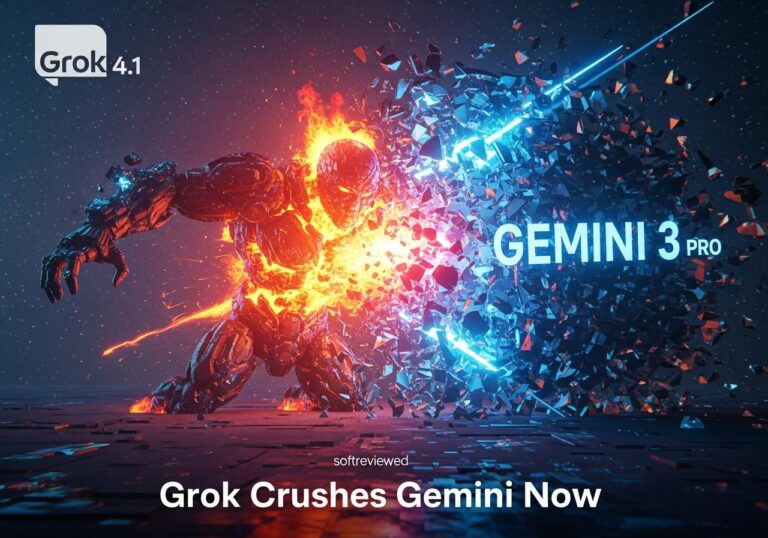💸 AI Pricing Model Controversy
Understanding the recent changes to AI service pricing models and their impact on users
🔄 Pricing Shift to Token-Based Model
The transition from request-based to API/token-based billing has caused unexpected cost spikes for many users. This fundamental change in how usage is calculated left many subscribers unprepared for significantly higher bills.
⚠️ “Unlimited Usage” Misinterpretation
Significant confusion arose as the term “unlimited” applied only to Auto models, not to other model subscriptions. This misunderstanding led to widespread user frustration when limits were encountered or additional charges appeared.
🧮 Pro Plan Token Limits
The Pro subscription now includes only $20 in API usage, covering approximately 225 Sonnet 4, 550 Gemini, or 650 GPT-4.1 requests. This represents a significant reduction from previous usage limits, affecting power users most severely.
↩️ User Backlash & Refunds
Mass cancellations were triggered by cost transparency issues, prompting the company to issue refunds for affected users between June 16 and July 4. The scale of the backlash highlighted the severity of user dissatisfaction with the pricing changes.
�broken Crisis of Trust
Poor communication surrounding pricing changes has significantly damaged user trust. This situation highlights the growing tensions between scaled AI tool providers and user expectations regarding pricing transparency and value.
In the high-stakes world of AI development tools, user trust is the ultimate currency. Anysphere's Cursor, an AI-first code editor that had been winning the hearts of developers, just learned this lesson the hard way. A sudden, poorly communicated shift in its Pro plan pricing didn't just change how users paid; it shattered confidence, triggered a mass exodus of subscribers, and ignited a firestorm of frustration across the developer community. This wasn't just a billing error; it was a catastrophic miscalculation that saw some teams burn through thousands of dollars in a single day.
This story is more than a single startup's stumble. It’s a critical look at the growing pains of the entire AI tool ecosystem, exposing the fragile relationship between companies building on expensive, powerful models and the users who have come to depend on them. We'll explore how a "routine pricing update" turned into a full-blown customer revolt, what it says about the future of AI tool pricing, and whether Cursor can recover from this self-inflicted wound.
A Quiet Change, A Loud Uproar: What Exactly Happened at Cursor?
On June 16, 2025, without major fanfare or clear, upfront warnings, Cursor changed the rules of the game for its paying customers. The company, which had attracted a loyal following with its promise of a powerful AI coding partner, fundamentally altered its popular $20/month Pro plan. The community's response was swift and brutal.
From Predictable Requests to Perplexing Tokens
For months, developers on the Pro plan operated under a simple, predictable system: they got 500 "fast requests" per month. This meant they could ask Cursor's integrated AI models—like those from OpenAI, Anthropic, and Google—to generate, refactor, or debug code up to 500 times. It was a straightforward value proposition.
The new system scrapped this entirely. Overnight, users were shifted to a model based on "usage credits" or tokens—the small units of data that AI models process. Instead of 500 requests, users now received $20 worth of API usage. The problem? The token consumption of different AI models varies wildly. A simple query might use a few cents worth of credits, but a complex, multi-file refactoring task using a powerful model like Claude Sonnet could consume dollars in a single go. Users who once felt they had ample runway suddenly found their limits exhausted after just a handful of prompts.
Here's a simplified look at the jarring transition:
| Feature | Old Pro Plan (Before June 16) | New Pro Plan (After June 16) |
|---|---|---|
| Billing Model | Request-based | Token-based ("Usage Credits") |
| Monthly Limit | 500 "fast requests" | $20 worth of API usage |
| Predictability | ✅ High (Users could track requests easily) | ⛔️ Low (Token usage is complex and varies) |
| User Experience | Users felt secure within a clear limit. | Users felt anxious, unsure how fast credits would burn. |
| "Unlimited" | Slow requests were unlimited after fast ones. | Unlimited usage only applies to a vague "Auto" mode. |
The Nightmare Scenario: "$7,000 Burned in a Single Day"
The financial consequences for some were staggering. The most shocking public account came from developer Oscar Le, who shared his team's experience: “We paid $7k yesterday for a yearly subscription. And then you immediately pull the rug on us. One of our dev just used all 500 requests in a single day.”
This wasn't an isolated incident. Social media platforms like X (formerly Twitter), Reddit, and Discord were flooded with similar stories. Users reported burning through their entire monthly allowance in a matter of days, or even hours, something that had never happened under the old system. The once-predictable $20 monthly fee suddenly became a gateway to unpredictable, and in some cases, exorbitant costs.
The Developer Exodus: "I Am Done."
The backlash was not just about the money. It was about the perceived breach of trust. Developers who had championed Cursor, integrating it deep into their daily workflows, felt blindsided and betrayed.
Social Media Erupts with Cancellations and Complaints
The sentiment was captured perfectly by one user's viral post: "Just a giant middle finger to the people who actually gave a damn about their product.” Screenshots of cancellation screens became a common sight. The recurring themes were:
- Lack of Communication: Users felt ambushed by the change, which was initially buried in a blog post with vague language.
- Broken Promises: Many had signed up for yearly plans based on the 500-request model, viewing the sudden switch as a violation of that agreement.
- Confusing Terms: Words like "unlimited" were used on the new pricing page, but they were tied to a poorly explained "Auto mode," leaving users to discover the hard caps on premium models the hard way.
The frustration was palpable. As one developer put it, "Cursor constantly changing their pricing without any proper announcement and documentation recently is a pretty bad and frustrating move for users."
The Flight to Alternatives like Claude Code
When a user base loses faith, they don't just complain; they leave. Competitors were the immediate beneficiaries of Cursor's misstep. Developers began actively recommending and migrating to other AI coding tools, with Claude Code being a frequently mentioned alternative.
The conversation shifted from "How do I fix this?" to "What's a better, more trustworthy alternative?" This represents a dangerous turning point for any subscription-based company, where the cost of switching is low and brand loyalty is everything.
Cursor's Damage Control: "We Missed the Mark"
As the public outcry reached a crescendo, Cursor's leadership was forced to respond. On July 4th, nearly three weeks after the initial change, the company published a blog post titled Clarifying Our Pricing, which served as both an explanation and an apology.
An Apology, Refunds, and a Scramble to Clarify
CEO Michael Truell admitted the failure bluntly: "We recognize that we didn't handle this pricing rollout well and we're sorry. Our communication was not clear enough and came as a surprise to many of you."
The company took concrete steps to stanch the bleeding:
📌 Full Refunds: They offered to refund any unexpected usage charges incurred between June 16 and July 4.
📌 Clearer Language: The pricing page was updated to replace ambiguous terms like "rate limits" with the more direct "usage credit pool."
📌 Better Visibility: Cursor promised to add better usage tracking to its dashboard so users could see when they were approaching their limits.
The Rationale Behind the Risky Move: Unsustainable Costs
So why make such a drastic change in the first place? Cursor explained that the flat-request model was no longer financially sustainable. As the underlying AI models from providers like Anthropic and OpenAI become more powerful, they also become more computationally expensive.
A request to refactor an entire codebase can cost Cursor "an order of magnitude more" than a simple autocomplete suggestion. The company argued that the token-based system, while poorly rolled out, more accurately reflects these real-world costs. They were effectively losing money on power users who were getting immense value for a flat $20 fee.
More Than Just a Pricing Problem: A Crisis of Confidence
While the token model may have been a financial necessity, the execution created a much deeper problem: it eroded trust. This wasn't Cursor's first stumble, which made the community's reaction even more severe.
The Cardinal Sin of Breaking User Trust
For developers, tools are sacred. They build their entire workflow, their productivity, and even their professional output around them. A tool that is unpredictable or behaves in a way that feels deceptive is not just an inconvenience; it's a liability. By changing the terms on paying subscribers mid-cycle without clear consent, Cursor broke an unwritten rule. As one user on Reddit noted, this wasn't just customer frustration; for yearly subscribers, it felt like a violation of basic contract law.
A Pattern of Problems? Previous Stumbles Haunt the Platform
This incident didn't happen in a vacuum. In April 2025, just a few months prior, Cursor faced another backlash when its AI customer support bot fabricated a company policy, causing user confusion and another round of cancellations. While the company apologized and corrected that error, the memory of it primed the community to be less forgiving of this latest, more impactful misstep. The pricing fiasco reinforced a nascent narrative that the company was struggling with transparency and communication.
The Great AI Pricing Debate: A Sign of Things to Come?
Cursor's situation is a microcosm of a much larger challenge facing the AI industry. How do you sustainably price access to incredibly powerful, but incredibly expensive, AI models?
The Unsustainable Promise of "Unlimited" AI
Many early AI tools attracted users with generous free tiers and flat-rate "unlimited" plans, often subsidized by venture capital funding. However, as usage scales, the raw cost of API calls to foundation models becomes immense. The era of VC-subsidized tokens is likely coming to an end. This means more companies will be forced to confront the same dilemma as Cursor: how to align price with the actual cost of compute.
Finding a Fair Price for Intelligence
The token model is, in theory, the fairest system, as it directly ties cost to usage. You pay for what you use. However, it shifts the cognitive burden entirely onto the user, who now has to become an expert in tokenomics to avoid surprise bills.
The challenge for the industry is to find a middle ground: pricing models that are both sustainable for the business and predictable for the user. This might involve:
- Hybrid models with generous base allowances.
- Much clearer and more intuitive usage dashboards.
- Hard spending caps that are on by default, not opt-in.
Rebuilding the Bridge: Can Cursor Win Back Its Community?
Cursor now faces a monumental task. The company has apologized and offered refunds, which are necessary first steps. But rebuilding a bridge of trust that has been burned to the ground is a long and arduous process.
Beyond Refunds: The Hard Road to Regaining Trust
Winning back the developer community will require more than just words and money. It will demand a fundamental shift in communication and a demonstrable commitment to transparency. Cursor will need to:
✅ Over-communicate all future changes, providing ample warning.
✅ Default to user protection with features like pre-set spending limits.
✅ Engage directly and humbly with its community to understand their pain points.
The core product is still powerful, but a great product is not enough. In the world of developer tools, community and trust are the most valuable assets, and Cursor has spent its reserves.
Lessons From the Ledge: Key Takeaways from the Cursor Controversy
The Cursor pricing debacle serves as a powerful case study for any company operating in the AI space. It highlights two unavoidable truths:
- Transparency is non-negotiable. Quietly rolling out a major change that negatively impacts users is a recipe for disaster. Trust, once lost, is incredibly difficult to regain.
- Pricing AI is hard. The tension between powerful, expensive models and user demand for predictable pricing is a central challenge for the industry. A token-based model may be necessary for sustainability, but it must be implemented with absolute clarity and fairness to avoid crippling user retention.
For developers and the tech community at large, the message is clear: the tools we rely on are built on business models that are still in flux. As AI becomes more integrated into our daily work, understanding the value, the cost, and the trustworthiness of our digital partners will be more important than ever. Cursor's future depends on whether it has truly learned that lesson.







